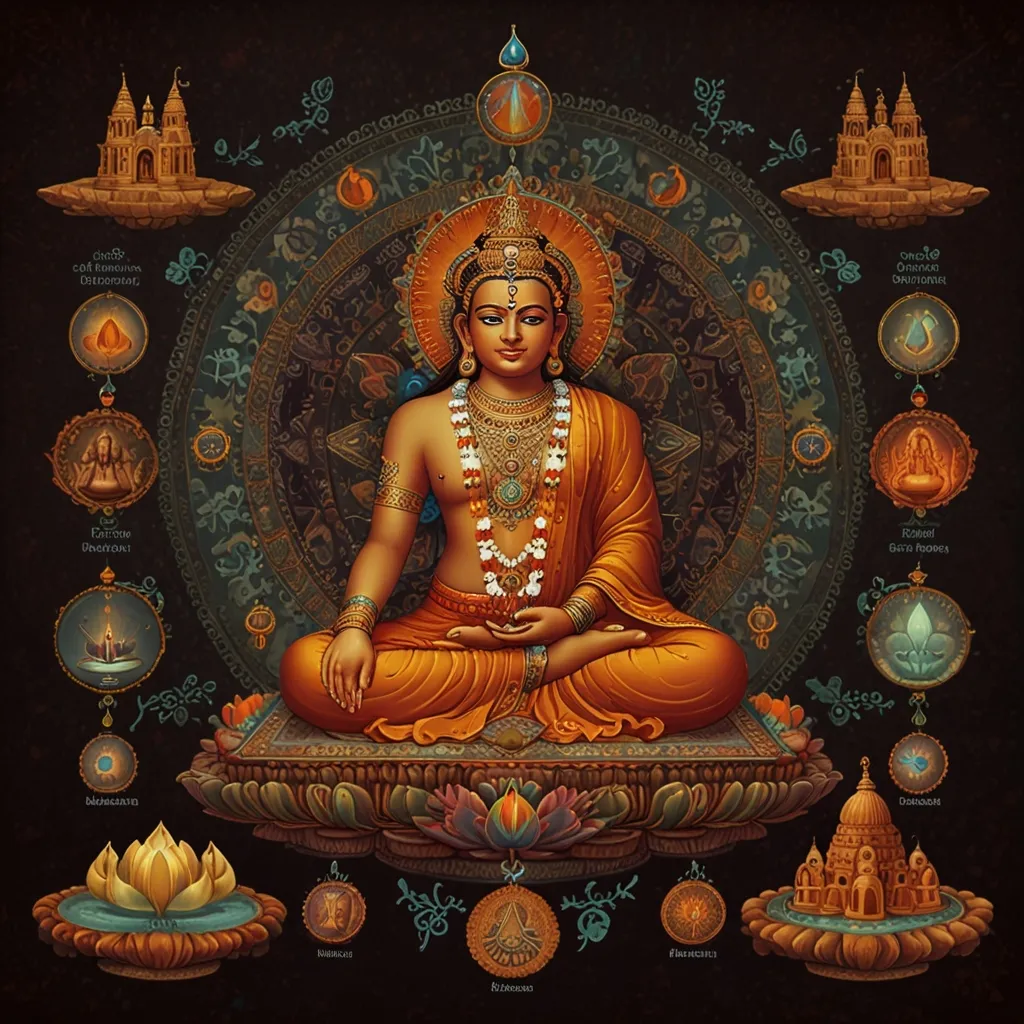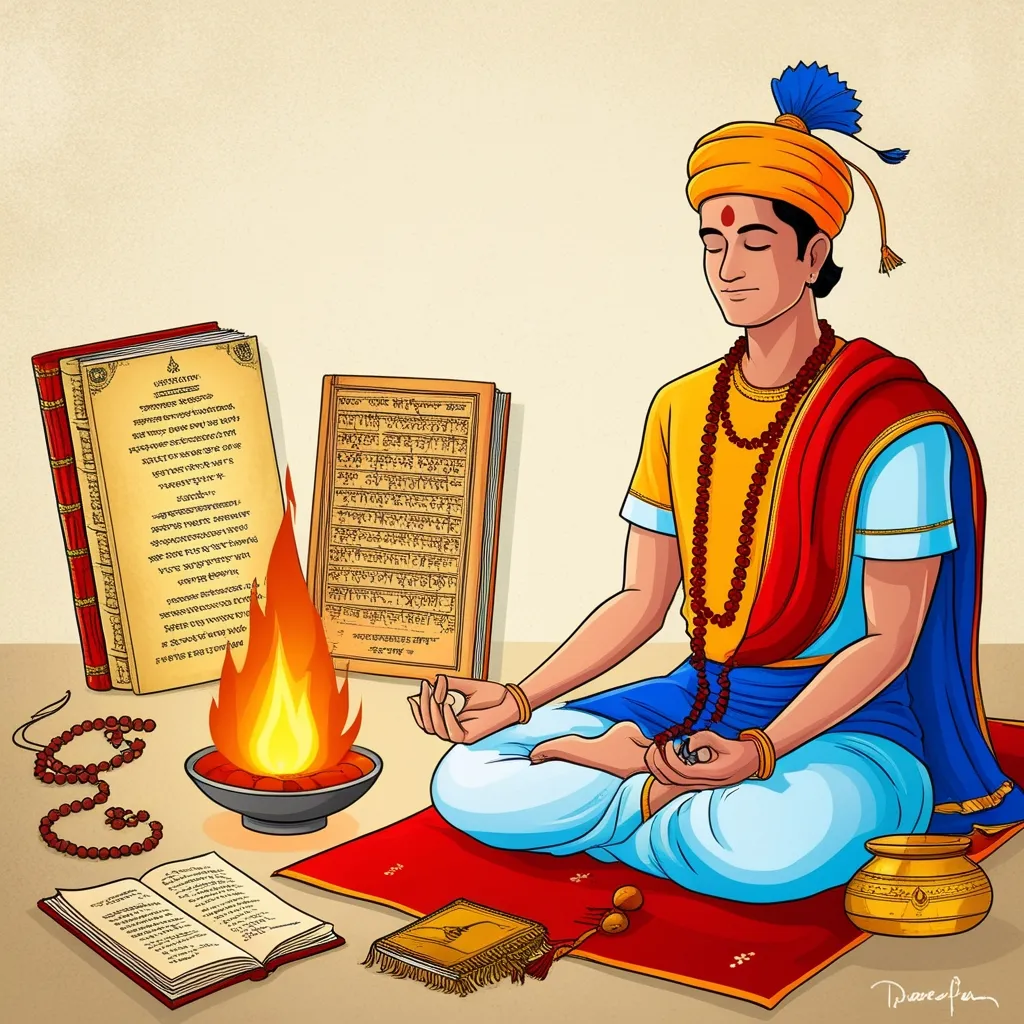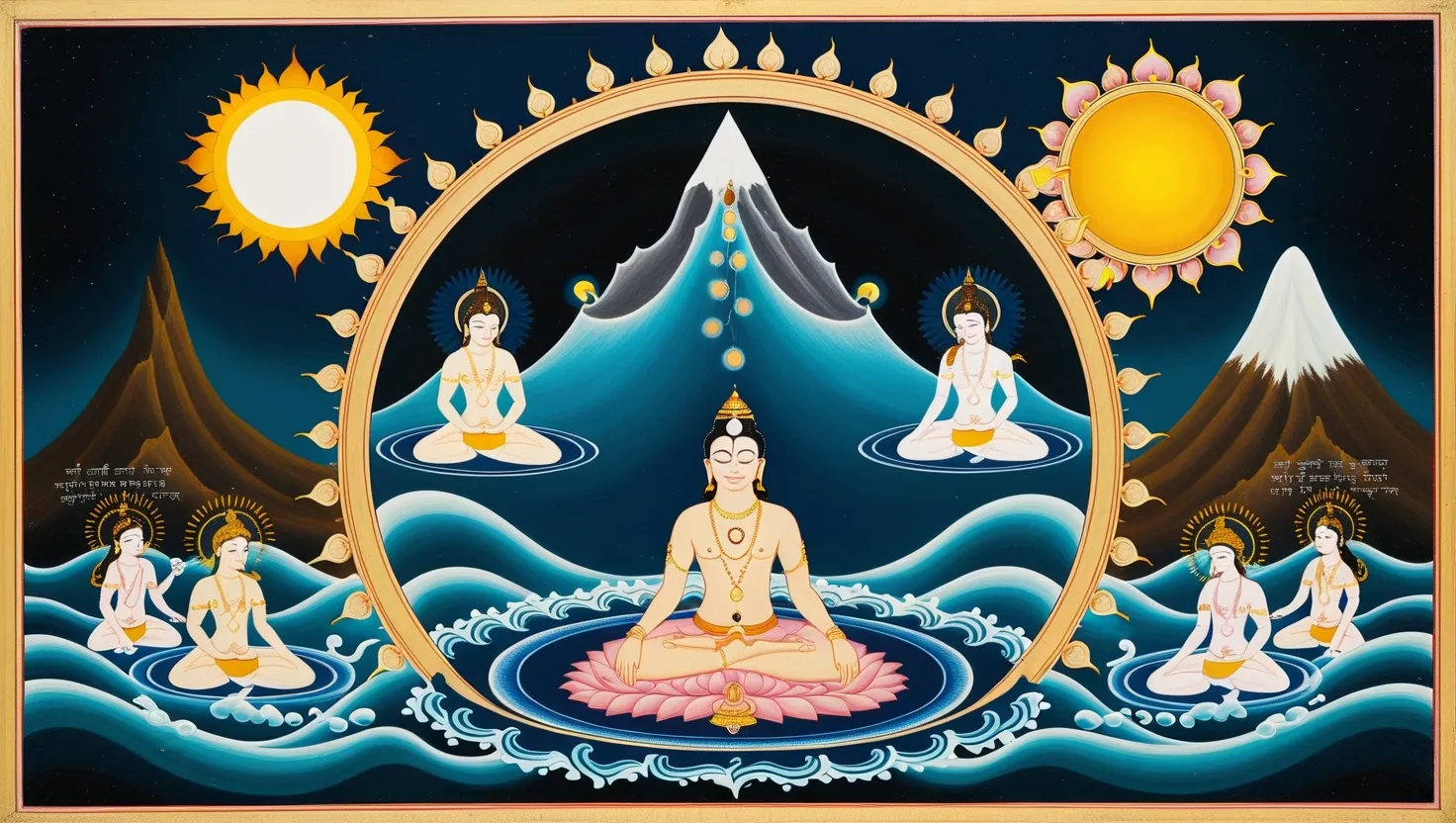The Vedas, the oldest scriptures of Hinduism, aren’t just sacred texts. They are a hidden goldmine bursting with linguistic and grammatical treasures. These ancient texts, created between 1500 and 500 BCE, were initially passed down orally before scribes etched them into Vedic Sanskrit. Let’s dive into how these timeless works helped shape early linguistics and grammatical thought.
In the world of the Vedas, language is seen as nothing short of divine. The hymns and mantras in the Vedas are viewed as the very sounds of the universe, heard by sages during deep meditation. This idea of language as a divine force underscores its significance in Vedic culture. The term “vāk” (voice) neatly describes language, driving home its role as a conduit between humans and the divine.
There are four main Vedic collections: the Rig Veda, Sama Veda, Yajur Veda, and Atharva Veda. Each collection contains its unique content, such as hymns, rituals, and philosophical musings. The Rig Veda reigns as the oldest and most important, boasting 1,028 hymns split into 10 books, known as mandalas. These hymns grapple with deep existential questions and reflections on the universe, showcasing the profound curiosity of the Vedic thinkers.
In Vedic culture, language is seen as an essential tool for conducting rituals and summoning the gods. The meticulous pronunciation and recitation of mantras are crucial for the successful completion of these rituals. This ritualistic use of language highlights its potent power and prominence in Vedic society. The language used in these sacred rituals is often referred to as “devī vāk” (divine language), setting it apart from everyday conversational language.
Early Sanskrit grammarians like Pāṇini, Kātyāyana, and Patañjali built their work on the linguistic foundations laid by the Vedas. Pāṇini’s grammar, assembled around 400 BCE, treated Sanskrit as a timeless language, capturing various regional dialects and scriptural forms. This monumental work laid the foundation for understanding the complexities of the Sanskrit language and its integral role in Vedic rituals.
The Vedic period also witnessed heated philosophical debates about the essence of language. One such debate involved Vyāḍi and Vājapyāyana, who took opposite stances on whether words signify individual instances or generic properties. Patañjali’s Mahābhāṣya delves into these discussions, ultimately agreeing that both individual instances and class properties are covered by meaning. These debates paved the way for later philosophical traditions like Nyāya and Vaiśeṣika.
Mantras, or sacred formulas, play a central role in Vedic language and thought. These powerful words are believed to embody divine truths and are employed in prayers, rituals, and even spells or incantations. The concept of mantras underlines the notion that language has the power to shape reality and influence the divine. Each Veda contains a significant collection of mantras, with the Rig Veda alone containing 10,600 mantras.
The Vedas were passed down orally for countless generations before being committed to writing. This oral tradition demanded rigorous memorization, with students learning the texts forwards and backwards to ensure precise pronunciation. This method of transmission underscores the crucial role of language in preserving cultural and religious knowledge.
Vedic literature also delves into the intricate relationship between language and thought, a theme echoed by modern linguists like Edward Sapir and Benjamin Lee Whorf. The Sapir-Whorf hypothesis suggests that language shapes thought, and Vedic texts reflect a similar understanding. The language of the Vedas is seen as shaping the way people perceive reality, highlighting the powerful influence of language on human cognition.
The Vedas are far more than ancient texts; they are a treasure chest of linguistic and grammatical insights that have profoundly influenced the development of early grammar and linguistics. From their divine language to their ritualistic use and philosophical debates, the Vedas demonstrate the vital role of language in human culture and thought. As we continue to explore the complexities of language and cognition, the Vedas remain a timeless and invaluable source of wisdom, offering insights that are just as relevant today as they were thousands of years ago.






